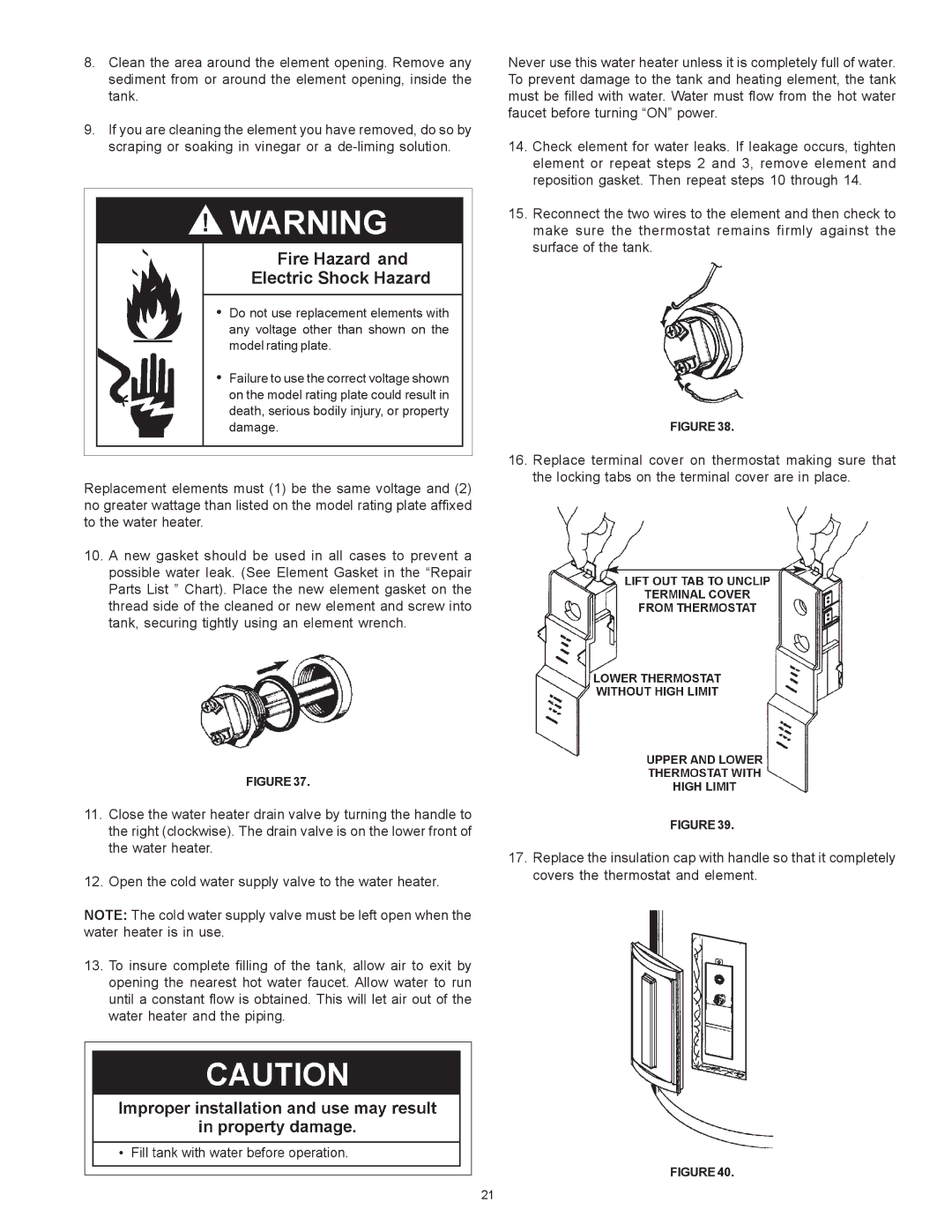
8.Clean the area around the element opening. Remove any sediment from or around the element opening, inside the tank.
9.If you are cleaning the element you have removed, do so by scraping or soaking in vinegar or a
Never use this water heater unless it is completely full of water. To prevent damage to the tank and heating element, the tank must be filled with water. Water must flow from the hot water faucet before turning “ON” power.
14.Check element for water leaks. If leakage occurs, tighten element or repeat steps 2 and 3, remove element and reposition gasket. Then repeat steps 10 through 14.
15.Reconnect the two wires to the element and then check to make sure the thermostat remains firmly against the surface of the tank.
Replacement elements must (1) be the same voltage and (2) no greater wattage than listed on the model rating plate affixed to the water heater.
10.A new gasket should be used in all cases to prevent a possible water leak. (See Element Gasket in the “Repair Parts List ” Chart). Place the new element gasket on the thread side of the cleaned or new element and screw into tank, securing tightly using an element wrench.
FIGURE 38.
16.Replace terminal cover on thermostat making sure that the locking tabs on the terminal cover are in place.
FIGURE 37.
11.Close the water heater drain valve by turning the handle to the right (clockwise). The drain valve is on the lower front of the water heater.
12.Open the cold water supply valve to the water heater.
NOTE: The cold water supply valve must be left open when the water heater is in use.
13.To insure complete filling of the tank, allow air to exit by opening the nearest hot water faucet. Allow water to run until a constant flow is obtained. This will let air out of the water heater and the piping.
FIGURE 39.
17.Replace the insulation cap with handle so that it completely covers the thermostat and element.
FIGURE 40.
21
